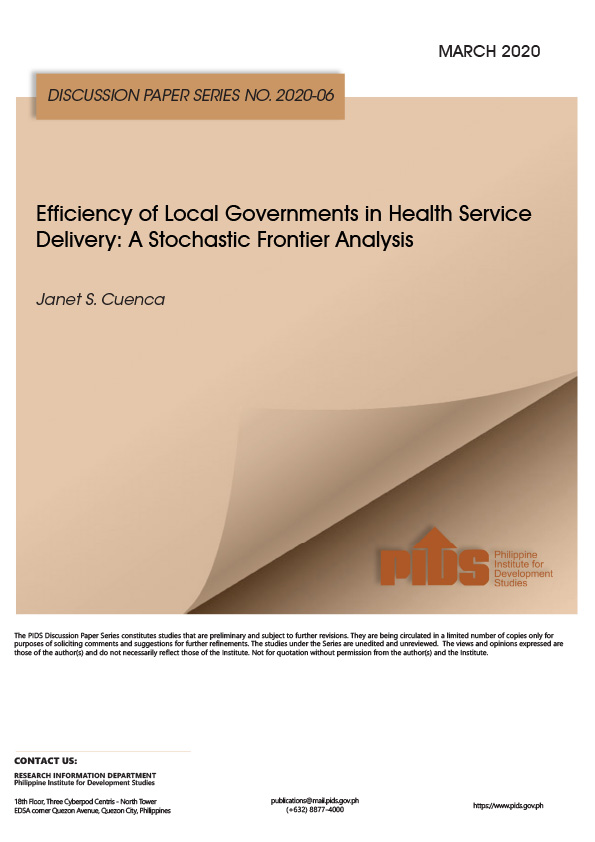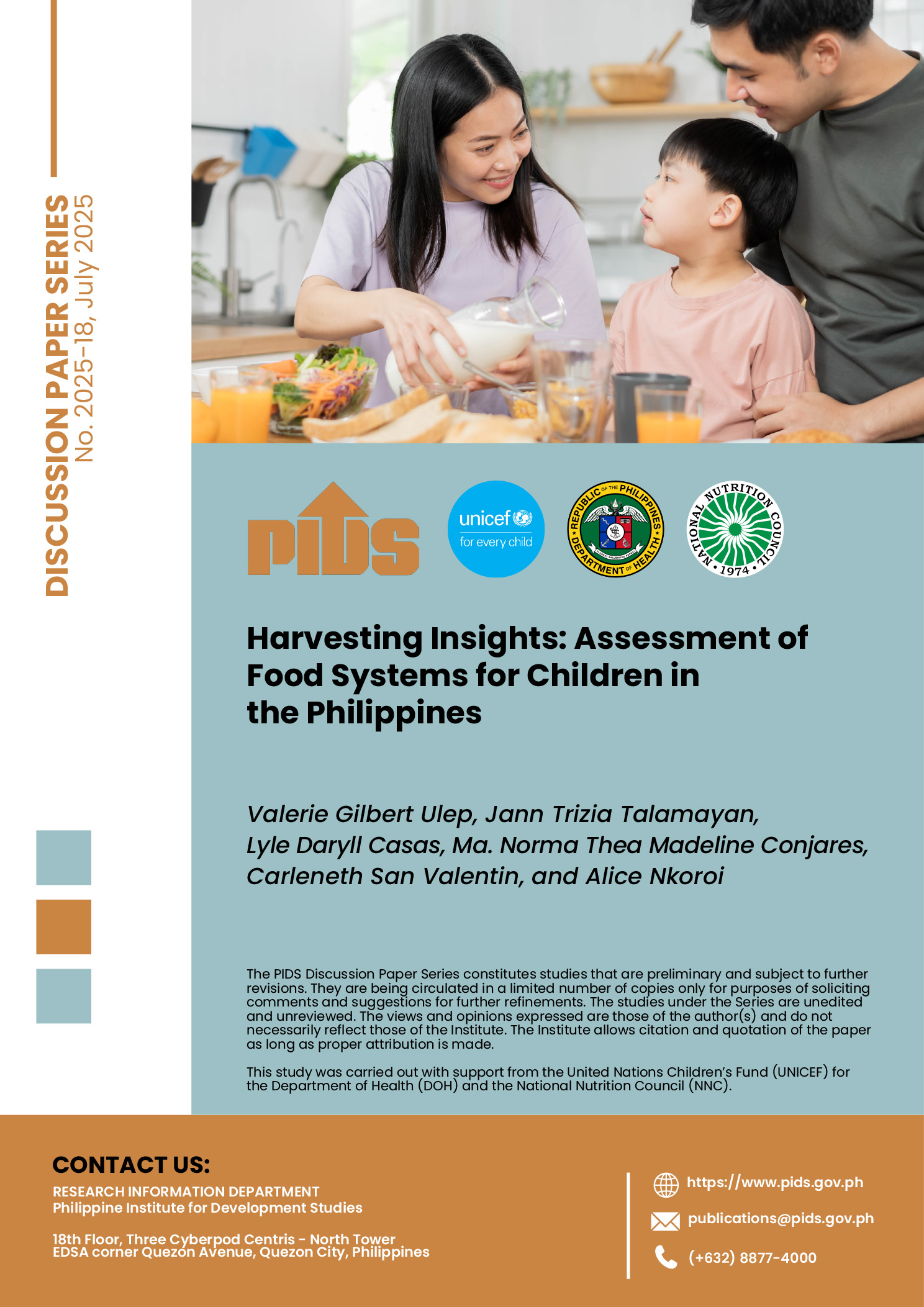The study analyzes the efficiency implications of fiscal decentralization using stochastic frontier analysis (SFA). It uses health expenditure (in per capita real terms) data from local government units (LGUs) as input. The output variables of interest include access to safe water and sanitation, health facility-based delivery, and access to hospital inpatient services. It also uses LGU income and its major components (i.e., own-source revenue and income revenue allotment, in per capita real terms) as covariates, as well as the health expenditure decentralization ratio, to account for fiscal autonomy on the expenditure side. Two measures of fiscal decentralization were also used as factors affecting efficiency to account for financial/fiscal autonomy of the LGUs on the income side (i.e., the ratio of own-source revenue to expenditures and ratio of own-source revenue to income). Issues on mismatch between local government fiscal capacity and devolved functions, fragmentation of health system, existence of two-track delivery system, and unclear expenditure assignments, among others, inevitably create inefficiency. These issues should be addressed to fully reap the potential benefits (e.g., efficiency gains) from fiscal decentralization, particularly health devolution.













